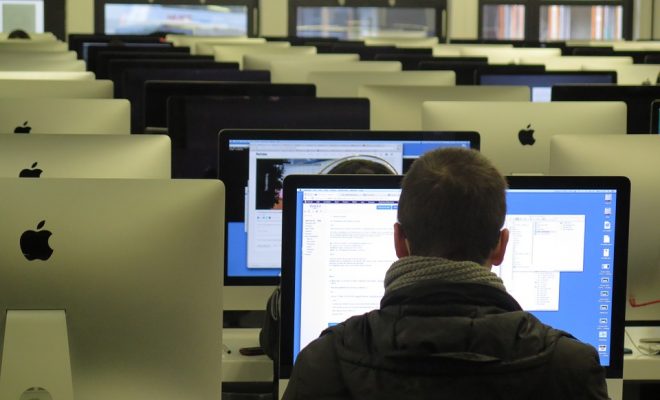How mobile phones are disrupting teaching and learning in Africa

Gina Porter, Durham University
Mobile phones have become ubiquitous in Africa. Among younger users, basic phones are most common. But more pupils are accessing smartphones that can connect to the internet – and taking them along to school.
Phones are often used in school whether they’re allowed or not. Although they can enable valuable access to information, they also bring new responsibilities and dangers. It’s remarkably common for classes to be interrupted by both pupils’ and teachers’ phones. Access to pornography as well as bullying and harassment through phones is widely reported.
We have conducted a study of young people’s mobile phone use in Ghana, Malawi and South Africa. Our findings emphasise the central place that mobile phones occupy in many young people’s lives. Before the mobile phone arrived in Africa, few people had access to landlines. The mobile phone represents far more of a communication revolution in Africa than in richer countries.
Researching phone stories
The study, involving a group of university researchers from the UK and Africa, was funded by the UK’s Economic and Social Research Council and Department for International Development. It covers many aspects of young people’s phone use, from generational relations to job searches and health advice. Use in school has emerged as a leading issue, echoing concerns around the world.
We conducted more than 1,500 face-to-face interviews and focus groups with young people, teachers, parents and key community members across 24 locations – eight in each country. These varied from poor city neighbourhoods to remote rural hamlets.
We followed this up with a questionnaire to about 3,000 young people aged between nine and 18 and 1,500 young people aged between 19 and 25 in the same 24 locations.
The survey of children aged nine to 18 years shows that mobile phone use is much higher than ownership figures might suggest. Ownership of phones was lowest in Malawi, the poorest of the three countries. Here only 8% of children in the survey owned their own phone, compared with 16% in Ghana and 51% in South Africa. Nonetheless, in Malawi 35% of children said they had used a phone in the week before the survey. In Ghana the figure was 42% and in South Africa it was 77%. Children often borrow phones from each other, their parents, other family members and neighbours.
Children’s use of phones
Some pupils, particularly in South Africa, use their phones to access sites like Master Maths for help with homework. But the positive benefits mostly seem to be limited to mundane tasks such as contacting friends to check on homework or using the phone as a calculator. Much information from pupils and teachers was more negative: academic performance affected by disrupted classes – due to teachers as well as pupils using their phones – disrupted sleep because of cheap night calls, time wasted on prolonged sessions on social network sites, and harassment, bullying and pornography.
Class disruption from pupils’ phones used to be mostly from ring tones when calls were received. Now, for those with smartphones, messaging on WhatsApp or checking Facebook have become common classroom activities. Teachers’ phone use in class can be equally disruptive, as some teachers admitted. A call comes in, or they make a call, and whether they step outside or take the call in class, the end result is that the lesson is interrupted and – as more than one told us – “You forget what you are going to deliver.”
In Malawi, 60% of enrolled pupils said they had seen their teacher using a phone in lesson time during the week before the survey. The corresponding figure for Ghana was 66% and for South Africa 88%. Pupils are rarely given such an opportunity to comment on the behaviour of those in authority over them but even if not all were truthful, these figures are of concern. Many head teachers also spoke about the problem of teacher phone use, saying they found it difficult to regulate.
Other problems include disturbing levels of pupil bullying and harassment. In the survey of enrolled pupils who use a phone, 16% in Ghana, 28% in Malawi and 55% in South Africa said they had received unwanted, unpleasant or upsetting calls or texts. This was almost equally true for boys and girls.
Distribution and viewing of pornography is also widespread, as older boys were often willing to disclose. A few – even primary school pupils – mentioned sexting.
Promoting responsible phone use in school
Many head teachers have asked us how to promote responsible phone use in school. Here are some suggestions:
Pupil phone use: It is important to have a clear school policy on pupil phone use, to inform parents about this and to explain the reasoning behind it. If the school has decided to allow pupils to bring their mobile phone to school – for instance, because of travel problems – but not to use it in school, then pupils could be required to put a name tag on their phone and deposit it with a staff member, using a register, before school begins. In this case parents or carers must be given a phone number for urgent messages.
If the school allows pupils to use mobile phones in class as calculators or to access the internet, pupils and their parents could sign an “acceptable use” agreement each term. This would promote effective use of class time and their own and other pupils’ safety.
Pupils also need reminders not to publish personal information on the internet and to tell their teacher, a parent or carer if they access any information that worries them. Parents must be encouraged to help their child follow the school’s guidelines. Asking them to sign an acceptable use agreement together with their children will help.
![]() Teacher phone use: Teachers’ mobile phones should be switched off and left in a safe place during lesson times. If teachers are using their phones when pupils are banned from doing so, pupils may become resentful. Staff should not contact pupils from their personal mobile phones or give their mobile phone numbers to pupils or parents. This would help teachers maintain sound professional practice.
Teacher phone use: Teachers’ mobile phones should be switched off and left in a safe place during lesson times. If teachers are using their phones when pupils are banned from doing so, pupils may become resentful. Staff should not contact pupils from their personal mobile phones or give their mobile phone numbers to pupils or parents. This would help teachers maintain sound professional practice.
Gina Porter, Senior Research Fellow, Durham University
This article was originally published on The Conversation. Read the original article.





